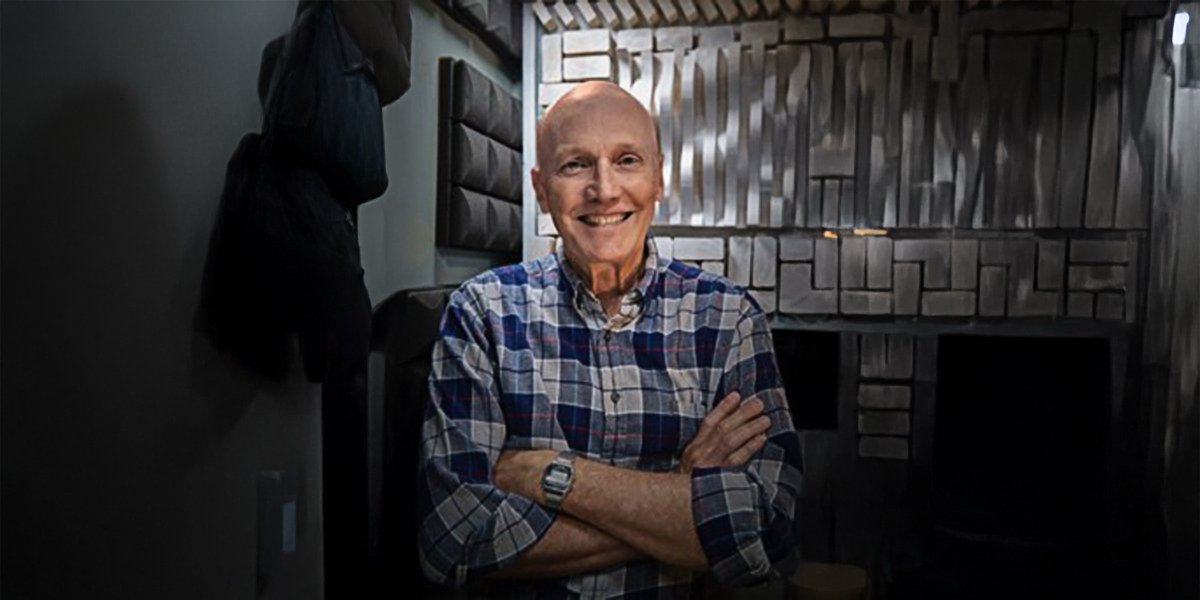Crafting Unique Voices and Collaborating to Create Engaging Narrations
Ward Paxton discusses his approach to character narration, the challenges of historical fiction, and the collaborative process with authors and producers.
Ward Paxton is a seasoned actor, producer, and audiobook narrator, whose storytelling expertise spans across multiple media, including radio, TV, theatre, voice-over, and film. With over 50 audiobooks to his name, Ward has gained recognition for his remarkable narrations of historical fiction, including the award-winning Baseball Humor: A Collection of Stories from Master Storytellers. A graduate of the University of Wisconsin-Madison, he draws on his deep training in audiobook narration and his extensive life experiences to deliver exceptional performances that captivate audiences. In this interview, Ward shares his insights on crafting distinct voices for characters, the challenges of narrating classic humorists like P.G. Wodehouse and Zane Grey, and how his theatre background informs his approach to narration. He also reflects on the collaborative process with authors and producers, the influence of his serene lakeside home studio in Madison, and the satisfaction he finds in bringing stories to life through voice.
Ward’s talent for capturing character essence and his dedication to storytelling make his narrations an unforgettable experience.
How do you approach creating a unique voice for each character in an audiobook performance?
The author’s text is super important in doing a character analysis. As I read the book I take notes about what the author writes about each character, including specifics in the attributions in dialogue. Studying the genre, style, and structure of the book leads the narrator to discovering the objective and tactics of each character. I record rehearsal sections and listen back. Quite often after finishing the narration I go back and re-record the first couple of chapters. It seems like I always can give a more nuanced performance then.
What challenges did you face while narrating stories from the great humorists like P.G. Wodehouse and Zane Grey?
Both P.G. Wodehouse and Zane Grey were prolific writers 100 years ago, and they used baseball as a backdrop for a few of their stories. One of the challenges was to take my knowledge of modern professional baseball and drop in into the 1910s and 1920s when baseball was the dominant professional sport and a part of everyday life. I read a lot of magazine and newspaper articles from that era to understand how to bring to life their stories in audio that today’s audiences would relate to and be entertained by. It works because emotions like jealousy, pride, love, hate, are the same.
Can you share how your theatre training has influenced your work as an audiobook narrator?
My family was mostly in the performing arts and I got training and a start as a kid. My first drama teacher was my grandmother. We had fun. But there’s a lot of hard work to it too. Learning about doing character analyses informs the narration work creatively and being trained to high standards assures my performances meet expectations.
What role does collaboration play in your process when working with clients to bring their stories to life?
Producers and authors are fascinating to get to know. Learning from the author what was the inspiration was for the book informs a lot of the choices to be made about how to take his/her text off the page and voice it. Submitting the first chapter of narration for feedback from the author or producer provides crucial guidance. If I have any questions, whether about the meaning of something or just how a name is pronounced, collaborating on those is most helpful and welcome.
How does living by Lake Monona impact your creativity or influence the stories you choose to tell?
It’s in having a home studio. It’s the ease of doing most of my work just by going to the studio in the basement. Sailing on the lake is our fun. So, it’s in the indirect benefits of a healthy lifestyle.
What is the most rewarding part of narrating audiobooks, especially in genres that require such a varied emotional range?
It’s very rewarding to get the creative juices flowing. Fiction is storytelling make believe, and that’s fun for me. Non-fiction is more like doing a monologue presenting valuable information to the listener. So, I feel I’m helping people. Working with collaborators in whatever way that happens is rewarding in how teamwork leads to a better listening experience for the audience. Discussing books is really quite something too.
What advice would you give to aspiring audiobook narrators looking to break into the industry?
I haven’t been doing audiobooks for a long time. If I were starting over I would spend more on coaching and attending conferences in person and less on building a fancy studio. When I say coaching I’m referring specifically to narrator coaches. There are many good ones and most add a measure of business coaching as part of it.


